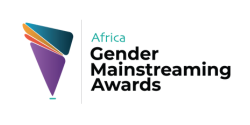The key focus of the 30% Club, an affiliate of Business Engage, is to encourage corporates to aim to achieve a minimum of 30% female representation on boards. It is acknowledged that board diversity both in respect of gender and skill set, leads to more successful boards.
The board of an organisation considers the strategy of the business with management and has oversight of the implementation of that strategy.
The crux of this award is to recognise and acknowledge companies that have successfully transformed their boards and board sub-committees whilst ensuring that female directors are judged on their experience, contribution to and involvement in, the board and not their gender. It seeks to acknowledge companies who challenge themselves to diversify their boards.
In summary therefore, entries may be based on:
- number of non-executive women directors on the board
- number of women on sub-committees and a list of which subcommittees
- entrants to supply the board diversity policy/framework which they are obliged to give the JSE and/or
- Pipeline development – details of the outlined hard plan to improve the number of women on the board
Individual
Nominate an Individual for a Gender Mainstreaming Awards category.
Company
Nominate a company for a Gender Mainstreaming Awards category.
| Aspects Adjudicated Upon | Weighting | What Information Needs to be Furnished | Criteria being applied in measurement |
| Design and Innovation | 30 | Detailed Overview of the Programme | Design, Innovation, detail and planning of the programe |
| Management | 10 | How the programme is/was managed | People involved / Frequency of meetings / Monitoring of implementation / Systems Utilised |
| Communication | 10 | How the programme was communicated | To Whom / Medium / Frequency / Format |
| Return on Investment / Business (Economic) Impact | 40 | Impact of the programme | Contribution to sustainability / profitability/ROI |
| Gender Targets (Broad Base) | 10 | Who the beneficiaries were | Number of women/percentage of staff/targets achieved |
